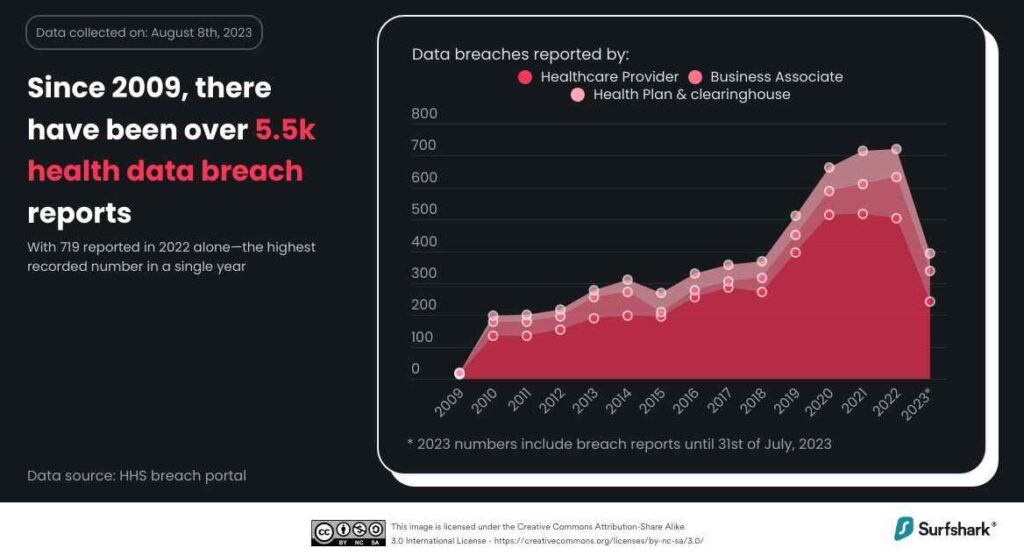How Safe Is Your Medical Data?

We keep hearing that data is the “new oil”, but what does that really mean for you? Particularly when it’s your own personal health information, it’s worth considering. In India, where healthcare is rapidly going digital, all of us are asking: how secure is our medical data?
You likely don’t even think about it when you schedule a doctor’s appointment online or receive your test results via email. It’s convenient and easy, of course. But convenience is concealing a dirty little secret – your health information may not be as confidential as you might wish.
The Rise of Digital Health in India
India has been making giant leaps towards digitalized healthcare. Programs like the Ayushman Bharat Digital Mission are establishing digital health IDs for every citizen.
That means having easier access to your medical history and healthcare facilities all at your fingertips. It is now common practice for many people to see doctors through apps, buy medicines, or track personal health habits like blood pressure and blood sugar levels.
This is great news, especially for people who live in the countryside where clinics can be difficult to access. But there is a catch: your medical records, which were once locked away securely in file drawers, are now locked away (albeit securely) on cloud servers and apps in your phone. And they are not always given proper safeguards.
Why Medical Data Is a Target

Your hospital records hold an enormous amount of information regarding you – your identity, your medical history, and personal information of your health. That information can be useful not only to your physicians but also to cybercriminals.
It can be used to commit fraud, impersonate a patient, or blackmail an individual. India seems to have had more data breaches with thousands of records floating on the internet in recent years.
Legal and Institutional Barriers
India has taken some big steps, like the Digital Personal Data Protection Act bill introduced in 2023, but enforcement is still weak. The vast majority of healthcare providers, especially small clinics away from big cities, can lack equipment and proper training to protect digital files adequately. Basic mistakes still happen – like sending medical reports via unencrypted email or keeping files on vintage computers.
Keeping Yourself Safe on the Internet
If you frequently access medical records or schedule appointments with health care providers online, especially on public Wi-Fi or public PCs, your data may be more vulnerable than you believe. You might want to consider basic security tools to protect yourself, like VPNs.
They encrypt your internet connection and hide where you’re located, so it becomes that much more difficult for a hacker to trace you. A VPN like the one offered by Surfshark can protect your health information without you needing any technical skills.
How You Can Be Safe
You can’t control what hospitals do with your records, but you can take some simple steps to protect your privacy:
- Use health apps only from known locations and check their privacy notices.
- Don’t browse health sites over public Wi-Fi, e.g., a coffee shop or train station.
- Keep your connection private with a VPN.
- Update to strong, new passwords and turn on two-factor authentication where you can.
- Update your phone and apps regularly to plug security gaps.
- Remove apps that you no longer use, especially those that have access to your health records.
- Ask your medical professionals to provide you with the information on how they store and protect your files. You have the right to know.
What India Needs to Do
It is not the citizen’s responsibility alone to keep medical information secure. India’s healthcare infrastructure must do better than that as well. That includes enforcing data protection regulations rigorously and providing hospitals and health-tech companies with clear, actionable regulations to abide by them. Periodic audits would ensure the rules were being implemented and increase accountability.
Health care professionals, from doctors to lab technicians, must receive minimum cybersecurity awareness training so they understand how to safeguard patient information. Small clinics, who do not have much money, might need technical support and funding to modernize without accidentally violating patient anonymity.
Transparency is paramount. Patients must be frankly told what is being done with their data. And in case of a data breach, it must be communicated quickly and openly. That is when India can start developing more trust in its digital healthcare system.
Conclusion
It’s personal and emotional, and now it’s virtual too. Our deepest stories, our sickness, treatments, and diagnoses, are stored somewhere we can’t always see or hear.
Because as patients, we are also deserving of safety and respect, not just in hospitals, but online too. So be curious, ask questions, and take baby steps to safeguard yourself. Because in a smarter world, your privacy should never come at the cost of progress.